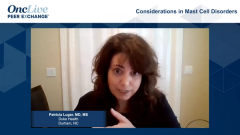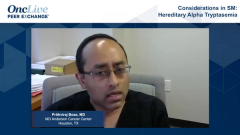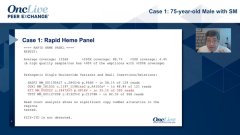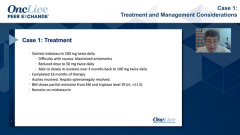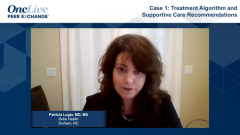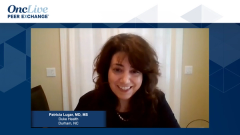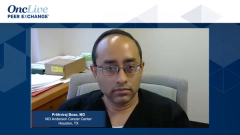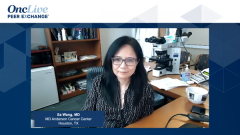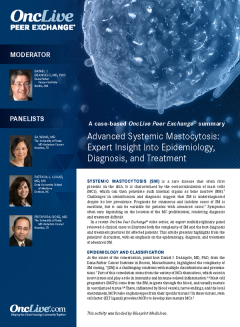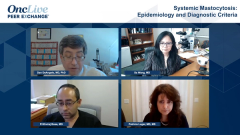
Avapritinib: Approval and Clinical Practice Implications
A panel of experts share their reactions to the approval of avapritinib and discuss the clinical implications.
Episodes in this series

Dan DeAngelo, MD, PhD: Prithviraj, you’re a co-author with me. Your thoughts on this data and the recent approval with avapritinib [Ayvakit]? Anything you’d like to share?
Prithviraj Bose, MD: Yes, extremely exciting, Dan. Of course, it’s been great to be a part of the avapritinib story. I think I find it very impressive that the overall response rate is 75%, not just in the PATHFINDER study, but also in the EXPLORER study, which makes it 85 evaluable patients. I think that is quite striking. Then, as you pointed out, a lot of them are CRs [complete responses]. If I recall right from the midostaurin [Rydapt] data, I think the CR rate was considerably lower…
Dan DeAngelo, MD, PhD: There were almost no true CRs. The CR plus PR [partial response] rate was about 19%, at least on the label.
Prithviraj Bose, MD: I think this is a drug which is hitting the target to a greater depth. This is, of course, a more potent and more selective inhibitor of mutant KIT, so I hope we are sparing wild-type KIT a little bit more. Not entirely, because we see myelosuppression, but hopefully more than we do with midostaurin. Overall, a very exciting drug.
Dan DeAngelo, MD, PhD: Of course, with all due diligence, there are some toxicities of concern that are different from midostaurin. Midostaurin has the GI [gastrointestinal] intolerance, but it’s not as myelosuppressive. This agent is not horribly myelosuppressive, but it is, as you mentioned. But it does have these neurocognitive issues, and there were some cases of subdural hematomas, although those cases were predominantly in patients with thrombocytopenia. With the amendment, we only saw one. But those are issues, and management of that is going to be a thing. We have two FDA [Food and Drug Administration]-approved drugs, which is great. His is also being tested in indolent systemic mastocytosis. I’ll have a case next on that. But your thoughts Dr. Lugar?
Patricia Lugar, MD, MS: This is, quite frankly, the hope that it gives to patients and physicians alike as a real treatment, certainly a better targeted therapy, is very exciting. We have a number of patients that are very, very interested in getting enrolled in further clinical trials that have indolent. It’s just an incredibly exciting time to be managing these patients. I hope that the same symptom score for indolent as well carries over in further trials because that’s the most difficult thing—managing the chronic symptoms. Even if we know these patients are stable, they don’t have a disease that’s going to be progressive, the majority of them, but managing the day-to-day symptoms is such the burden of disease. And then, as I told you, my cocktail, not only is that exhausting and expensive, but that has a lot of side effects too—sedation, weight gain from antihistamines. It’s not easy to tolerate in seemingly very mild medications, but the burden of treatment and disease is still high on our list.
Dan DeAngelo, MD, PhD: Well, it’s always nice to have options.
Transcript edited for clarity.


